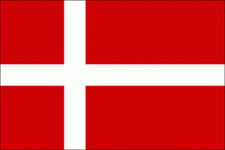
In 2015, Denmark removed its annual quota of 500 people for reception via the UN's global refugee resettlement programme. Since then 235 people have arrived via the programme, all from UNHCR camps in Rwanda, where they arrived after displacement from DRC.
The majority of these arrivals are single women, often with children, who belong to a specific ethnic minority group in DRC. Many have been living in difficult conditions in camps for years - with little access to schooling or education systems - before their resettlement. Special effort has been made to integrate them into Danish society, mostly in relation to education and skills development: Denmark presents many new possibilities, although there are also obstacles in that it has a highly skilled labour market and the Danish language is very difficult to learn. The country also has the highest degree of digitalisation in the world.
EWSI previously published 10 recommendations made by Aarhus University and the Danish Refugee Council on how to welcome and receive this particular group at the local level, which can also serve as inspiration for the reception of other refugee groups. The Ministry for Immigrants and Integration also published a check-list for the reception of UN refugees from DRC, aimed at local authorities, and has facilitated online meetings for municipalities to share knowledge and best practices. Further, the Danish Refugee Council published an evaluation of the voluntary efforts of civil society in welcoming this group, demonstrating the importance of neighborhood support and local friendships to the wellbeing of the newcomers.
Only a small number of people in Denmark speak Kinyarwanda, the native language of those arriving from DRC. In order to ensure that they receive crucial information during the early integration period, therefore, the Danish Refugee Council and ALS Research produced a series of short videos in Kinyarwanda. These cover practical issues such as the use of a modern kitchen and bathroom, washing machine operation, bank accounts, local shopping and public transport systems.
Details
- Publication dates
- Geographic area
- Denmark
- Source
- Posted by
